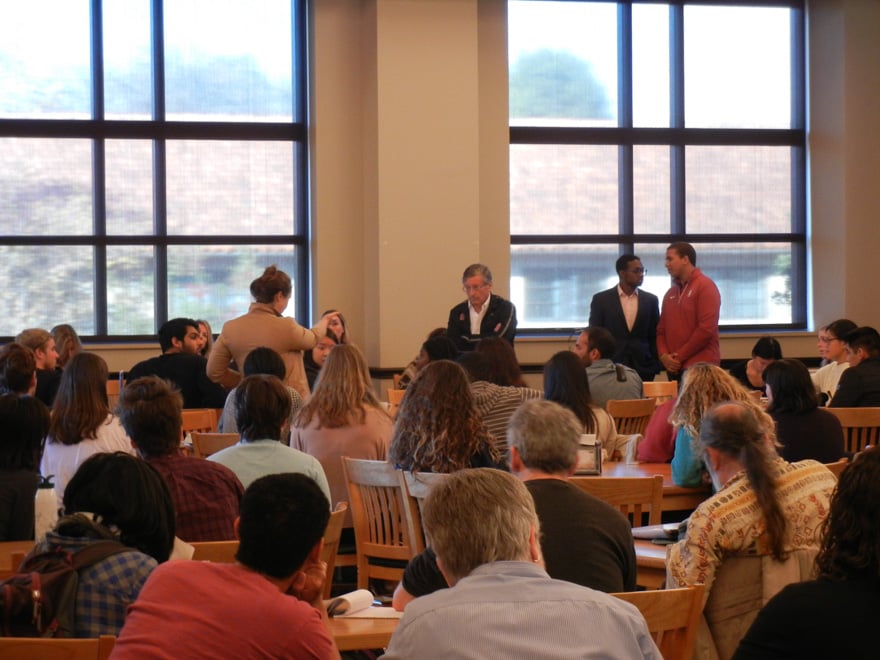The University has announced a new process for investigating and adjudicating sexual assault cases. The process, called the Stanford Student Title IX Investigation and Hearing Process, will replace the current Alternate Review Process. The pilot for the new process will begin on Feb. 1 and is expected to last until August 2018.
The new process is based on recommendations made last year by the Provost’s Task Force on Sexual Assault Policies and Practices. According to the University’s summary of the new process, the procedure improves upon its predecessor by “streamlining the process, providing legal assistance, improving the hearing process and establishing expulsion as the expected sanction.”
The process begins when the Title IX Office receives a reported incident and initiates an investigation. A panel of well-trained faculty, staff and graduate student reviewers conducts a hearing to determine responsibility and disciplinary measures. By request, either party in a case can independently review evidence in advance to be used in the hearing. Up to nine hours of legal assistance will be available for students who request it. The process lays out appeal procedures for both parties.
The current version of the new process reflects campus feedback collected during a comment period in fall quarter. Major elements incorporated from the comment period include more legal assistance, clarification of available services to the student body and more established nomination procedures for faculty and student panelists.
“In addition, based on community comment, the pilot process now assigns the Title IX Office, rather than a hearing panel in consultation with the Title IX Office, the task of determining ongoing accommodations for a student after a finding of responsibility,” the announcement stated.
Several community recommendations were fielded during the draft phase but not implemented. Some comments recommended changing the panel size from three to four or five. Others variously supported a simple majority vote or a four out of five vote for determining responsibility, instead of the unanimous vote requirement adopted by the process.
Commenters had also objected to the “preponderance of the evidence” standard, but the University has kept the standard in place, citing recommendations by the U.S. Department of Education’s Office for Civil Rights. Some objected to expulsion as the default sanction for sexual assault — the University statement emphasizes that the sanction is “expected” and not “mandatory.”
Additionally, others suggested broadening Stanford’s definition of sexual assault. However, the new process retains the original definition, as “a definitional change would not affect this pilot process because Stanford already explicitly prohibits all unwanted sexual conduct,” according to the University announcement.
The pilot is subject to revision as the University tests each part of the process. If approved by the Board on Judicial Affairs, ASSU Undergraduate Senate, Graduate Student Council, Faculty Senate and the President, the new Title IX process will be adopted as University protocol after the pilot period.
Contact Victor Xu at vxu ‘at’ stanford.edu.
